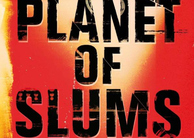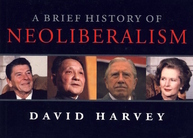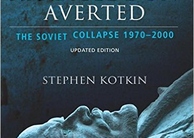From Earth Common Journal VOL. 3 NO. 1Christopher Benjamin's Eco-Innovators: Sustainability in Atlantic Canada - Stories to Change Minds and Move Hearts
IN THIS ARTICLE
KEYWORDS
AbstractIn his 2011 book, Eco-Innovators: Sustainability in Atlantic Canada, environmental journalist Chris Benjamin provides a new kind of roadmap to a more sustainable future. In this work, Chris masterfully weaves the stories of 35 creative and dedicated individuals from the four Maritime Provinces who recognize the need to take action now. From more sustainable food, transportation, or housing choices, to new business models, to community- based social marketing and branding, to journalists and educators raising their voices for change, Chris outlines some of the many narratives for change. In so doing, he offers workable options that inspire pro-environment attitude and behaviour change, at the individual, organizational, and systemic levels. IntroductionMany Canadians are actively engaged in efforts to create a more sustainable future. Some remain relatively hidden from view, their ideas and behaviours potentially lost to others because they are regular individuals, though doing extraordinary things. One book that tries to shine a spotlight on these individuals, while simultaneously providing readers with a simple roadmap for this future, is journalist Chris Benjamin's Eco-Innovators: Sustainability in Atlantic Canada. This book is important because Chris shares stories highlighting the inventiveness and dedication of Canadians who recognize the need to take action now. Through an examination of Eco-Innovators, this paper hopes to outline some of the key methods by which we can work towards sustainability in Canada as a whole: building sustainable communities, establishing new business models, re-branding the environment, and supporting voices of change. Chris Benjamin: Environmental JournalistChris Benjamin did not start out thinking he would be a journalist; he kind of stumbled upon the career (Interview, June 19, 2013). When a volunteer position came up at the student newspaper, the Dalhousie Gazette at Dalhousie University in Halifax, he jumped at the opportunity, and chose to write about things he wished they addressed in his Bachelor of Commerce program – sustainability, social justice, social good and the like. During our interview, Chris said, "When I was in business school, it was extremely conservative. I was really an outlier, in my point-of-view. People made fun of my columns a lot, in a nice, friendly way, but still..."(Interview). Upon completing a Masters of Environmental Studies at York University in Toronto, Chris worked in the environmental field in Toronto, first with Greenest City and then the Toronto Region Conservation Authority. He also freelanced, writing about the environmental work he was doing. In 2006, Chris took a position as a journalist in Ghana, West Africa, at the daily national paper, The Statesman. Once there, he covered stories related to national development, "anything from health care to the environment to prison systems, human rights issues... eco-tourism (Interview)." After a six-month stint in Ghana, Chris and his wife returned to Halifax in 2008. Shortly thereafter, Chris, while continuing to work as a freelancer, was hired by The Coast, the local independent paper, to write an environmental column. In addition to his work on the environment, Chris published his debut novel, Drive-by Saviours, in 2010, longlisted for Canada Reads in 2011, the very year Nimbus Publishing put out Chris's Eco-Innovators: Sustainability in Atlantic Canada. Examining Chris's resume, you get a strong sense of the breadth and depth of his writing experience – covering subjects from wind power to branding the environment, carbon taxes to cycling, and urban farming to Green Santa. His passion for both the environment and journalism are clear, as his desire to rally voices for real and sustainable change. Eco-Innovators and a More Sustainable FutureThe seeds for this project were first planted when Halifax-based Nimbus Publishing, the largest English-language publishing company east of Ontario, wanted to add an environmental book to their catalogue (Interview). Nimbus knew of Chris's writing from The Coast and approached him to join them in this project. The publishers originally wanted Chris to write a guidebook to environmental products in Atlantic Canada, a book in the same vein as Ecoholic: Your Guide to the Most Environmentally Friendly Information, Products and Services in Canada by Adria Vasil out of Toronto. Rather than produce a straightforward descriptive guidebook covering various categories – such as personal hygiene, clothing, food, home improvement, outdoor living, transportation, and more – Chris pitched a more personal narrative-focused version of the Atlantic Canada environmental tale. He felt that a series of narratives on Atlantic Canadians actively involved in a variety of sustainable choices would help inspire and motivate change in others. As Chris, in his introduction, writes so eloquently: Stories, if we believe them, are humanity's most powerful tool. They determine how we understand and experience the world, and how we act within it. If our stories are of war then we war. If our stories are of control and dominion then we conquer and subdue. If our stories are of cooperation, hard work, and change then we adapt and persevere together. (Benjamin, 2011, p. 1) While Chris acknowledges the complexity of the issues we face, noting specifically the challenges of "food scarcity, declining accessibility of cheap oil, climate chaos, the poisoning of our land, water and air" (p. 2), he is not ready to throw up his hands in despair Unlike others who either pretend climate change isn't happening while consuming without care or those who think the situation is beyond their ability to control, Chris sketches 35 stories of Atlantic Canadians that demonstrate and model a third way – the possibility of a move to a more sustainable lifestyle, through sustainable choices in housing, transportation, food, clothing, lawn care, vacationing and the like. Healthy CommunitiesHousing brings environmental challenges of various kinds. Urban high rises, for instance, are heavily dependent on fossil fuels. Over six stories high, such buildings cannot be fueled by alternative energy sources such as solar panels (p. 29). Rural living, too, comes with its own challenges. Unlikely to be public transit accessible, rural homes leave people car-dependent, while suburbs are the worst of both worlds, necessitating the paving of paradise and spreading out our ecological impact. As Chris sees it: Healthy neighbourhoods are those with good soil quality, minimal noise and vehicle traffic, clean air, plentiful sidewalks, ample green spaces and playgrounds, trees, quality housing, and opportunities for outdoor social gatherings. They minimize automobile use, social isolation, air pollution, noise, traffic fatalities, obesity, and water pollution from parking-lot runoff. (p. 32) In terms of sustainable housing, Chris offers up two alternatives – straw bale homes and retrofitted existing structures. The first option, as illustrated in Eco-Innovators by Kim Thompson's Straw Bale Project in Nova Scotia, uses straw, as local, renewable, and extraordinarily inexpensive building materials. For her own home, Kim paid but $400 for the straw bales essential to construct a two-floor dwelling (p. 27). One other option is perhaps more appealing: quoting Carl Elefante, Chris writes "the greenest building is the one already built" (p. 34) because of the embodied energy already put into its "extraction, processing, manufacture, and shipping of materials" (p. 34). He recognizes, however, that work may be necessary to retrofit, reinsulate, and upgrade such a homes, and that toxic substances including asbestos may need to be removed. Eco-Innovators also focuses on another aspect of sustainable housing, one that has little to do with the "green-ness" of the building itself. A 2011 study by the US Environmental Protection Agency, found that when you account for transportation energy, the most energy efficient home is one located within two kilometres of a public transit stop. In other words, "the home's location relative to transportation choices has a large impact on energy consumption," larger than any green features of the home itself (p. 108). But what if public transportation is not available? Chris explores other lower impact forms of transportation: from the Grand Concourse walking trails of St. John's, Newfoundland, to the Bicycle Bus program in Summerside, PEI, to the CarShare program in Halifax. Perhaps the most creative of these is Prince Edward Islander Harry Smith's wind-powered Toyota RAV4, a vehicle purchased off eBay (p. 108). Feeling rather guilty about living in a large home off the transit line, Harry wanted to lessen his environmental impact. He felt plugging his car into the electricity grid was essentially the same as driving a gas-engine vehicle. To solve this dilemma, Harry purchased a wind turbine to fuel his new car (p. 110). While he recognizes that his transportation choice isn't going to "save the world...he's too stubborn to watch civilization crumble without at least showing people what else is possible" (p. 111). Though perhaps an extreme example, Harry's ingenuity can serve to inspire others to find solutions to their own environmental concerns. Believing a "resilient community is one that isn't dependent on others for survival" (p. 8), Chris looks mainly to local solutions to make self-sustainability more attainable. With food, for instance, Chris points out that the vast majority of foodstuffs in Canada are products of a large industrialized food system "marinated in oil" (p. 80), travelling in some cases up to 8,000 kilometers from farm to factory to plate. As a direct consequence, he sees that much of our food dollar – 87 cents on the dollar in Nova Scotia – goes toward food giants like Cargill, Tyson and XL Foods (p. 82). By comparison, farmers in the Atlantic Provinces earn on average between $5,500 and $12,000 per year, a barely livable wage that, understandably, has left many farmers and their families with little choice but to sell their land to real estate developers and factory farm operators (p. 85). This loss of local control over the food supply, however, leads to the very real danger that future disruptions, diversions, and price increases of imported foodstuffs will leave us without the ability to feed ourselves. Eco-Innovators posits several alternative options in this return to local fare. Tom Van Milligen's Swedish-style, small-scale hog farm and David Ling's mixed organic Fair Acre Farms provide models of successful family farms. To provide Halifax and area growers a space to sell their goods, Sean Gallagher opened Local Source grocery, "selling only local seasonal fruits and veggies, free-range meats, cheeses, and home-style cooking and baking" (p. 93). And Speerville Flour Mill in New Brunswick mills 145 different products, all organic and local where available (p. 88). In other words, no shortage of options exists for local fare, if a consumer is willing and able to search out more sustainable alternatives.Continued on Next Page » Suggested Reading from Inquiries Journal
Inquiries Journal provides undergraduate and graduate students around the world a platform for the wide dissemination of academic work over a range of core disciplines. Representing the work of students from hundreds of institutions around the globe, Inquiries Journal's large database of academic articles is completely free. Learn more | Blog | Submit Latest in Book Reviews |
















